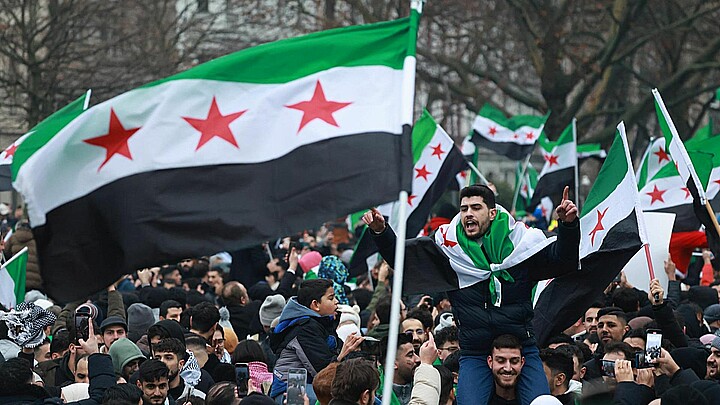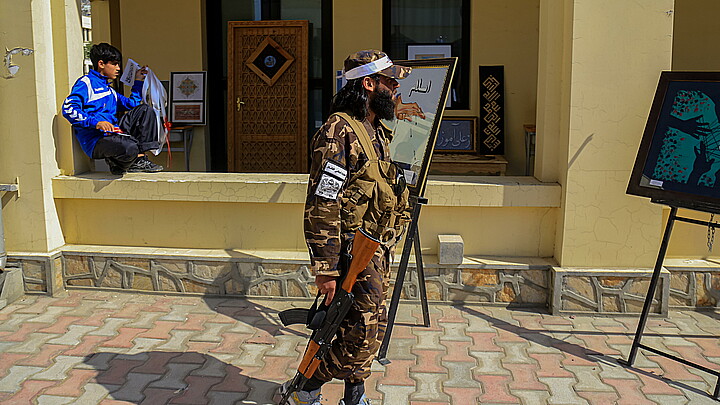Politics
Bomb explosions kill 103 during ceremony honoring slain Iranian Gen. Qasem Soleimani, says state media
Sunni jihadist groups and Arab separatist movements have carried out such attacks in Iran during the past several years

January 3, 2024 12:00pm
Updated: January 3, 2024 12:01pm
Two bomb explosions reportedly killed at least 103 people near the burial site of Iranian general Qasem Soleimani Wednesday morning, according to the Associated Press.
The event was honoring the slain general on the fourth anniversary of his killing by the United States, a move that was carried out during the Trump Dept. of Defense in 2020.
Then President Donald Trump said he ordered the 2020 killing at the time because Soleimani was “the number-one terrorist anywhere in the world.”
Iranian state broadcaster Irib reported that, in addition to the fatalities, there were an estimated 141 injured when the explosions detonated near a procession taking place by the Saheb al-Zaman mosque in the southern city of Kerman.
Irib reported that Kerman's deputy governor called the event a "terrorist attack” although the Islamic regime has not yet named any group or nation state for being responsible.
There were also no immediate claims from any organizations, entities or individuals.
While Iran has maintained tense relations with the U.S. and Israel, both of whom have traded jabs with the theocratic regime, they have never engaged in a mass attack that arbitrarily harmed civilians.
Contrarily, Sunni jihadist groups and Arab separatist movements have carried out such attacks in Iran during the past several years.
Wednesday's attacks came after the deputy leader of the Iran-backed Palestinian group, Hamas, was killed in an apparent Israeli drone strike in Lebanon.
“While Israel has carried out attacks in Iran over its nuclear program, it has conducted targeted assassinations, not mass casualty bombings. Sunni extremist groups including the Islamic State group have conducted large-scale attacks in the past that killed civilians in Shiite-majority Iran, though not in relatively peaceful Kerman,” the AP reported.
“Iran also has seen mass protests in recent years, including those over the death of 22-year-old Mahsa Amini in 2022. The country also has been targeted by exile groups in attacks dating back to the turmoil surrounding its 1979 Islamic Revolution.”
Soleimani is revered as a mystical icon to many supporters of the Islamic Republic and Khamenei regime. He was, before his death in Iraq, considered by many to be the highest-ranking figure just below the Supreme Leader, Ayatollah Ali Khamenei.
Video captured and aired by Iranian state media depicted hundreds of people gathered near the general's hometown of Kerman when the two bombs were detonated--the first at 2:50 p.m. local time and the second 15 minutes later, according to Interior Minister Ahmad Vahidi.
Soleimani's tomb was reportedly not impacted from the blasts.
The bombs exploded near the general’s tomb by “remote control,” which is located near the Saheb al-Zaman mosque at the Garden of Martyrs cemetery, according to the Tasnim news agency, a press outlet directly affiliated with the hardline Islamic Revolutionary Guards Corps (IRGC).
According to the National Counterterrorism Center for the U.S. Office of the Director of National Intelligence, the IRGC operates separately from the regular Iranian military both domestically and internationally, mainly in Iraq and Syria with an estimated personnel of 150-180,000.
Those who witnessed the events said the explosions came from near a waste bin.
“We were walking towards the cemetery when a car suddenly stopped behind us and a waste bin containing a bomb exploded,” said one witness according to the Isna news agency.
"We only heard the sound of the explosion and saw people falling."
As commander of the Revolutionary Guards' Quds Force, Soleimani ran clandestine operations throughout the Middle East including logistical support to both Hamas and Hezbollah.










